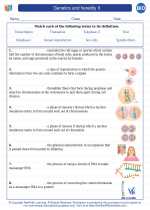Humans
Humans are members of the species Homo sapiens, belonging to the family Hominidae. They are characterized by their bipedal locomotion, complex brain structure, and sophisticated use of tools and language.
Physical Characteristics
Humans have a unique combination of physical characteristics, including:
- Bipedal locomotion - walking on two legs
- Opposable thumbs for grasping objects
- Large brain relative to body size
- Forward-facing eyes for depth perception
- Erect posture
Genetic Makeup
Humans have a diploid set of 23 pairs of chromosomes, for a total of 46 chromosomes. These chromosomes carry the genetic information that determines an individual's traits.
Organ Systems
The human body is composed of several organ systems that work together to maintain homeostasis and carry out essential functions, including:
- Cardiovascular system
- Respiratory system
- Digestive system
- Endocrine system
- Immune system
- Nervous system
- Reproductive system
- Integumentary system
- Muscular system
- Skeletal system
Reproduction
Humans reproduce sexually, with the fusion of a sperm cell from a male and an egg cell from a female resulting in the formation of a zygote. The zygote undergoes mitotic divisions to form an embryo, which develops into a fetus and eventually a newborn human.
Study Guide
To study the topic of humans, it is important to focus on the following key areas:
- Physical characteristics and adaptations for bipedalism
- Genetic makeup and inheritance of traits
- Organ systems and their functions
- Reproductive process and development of a human embryo
Additionally, it is beneficial to explore the cultural, social, and ethical implications of being human, including the impact of human activities on the environment and other species.
[Humans] Related Worksheets and Study Guides:
.◂Biology Worksheets and Study Guides High School. Genetics and heredity II
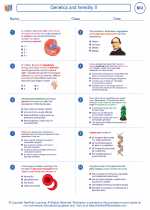
 Worksheet/Answer key
Worksheet/Answer key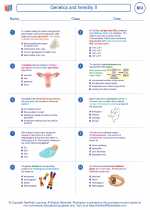
 Worksheet/Answer key
Worksheet/Answer key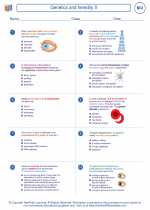
 Vocabulary/Answer key
Vocabulary/Answer key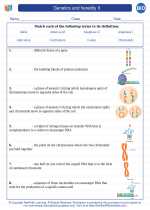
 Vocabulary/Answer key
Vocabulary/Answer key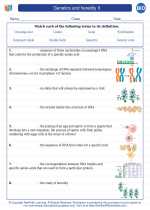
 Vocabulary/Answer key
Vocabulary/Answer key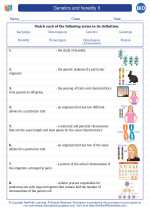
 Vocabulary/Answer key
Vocabulary/Answer key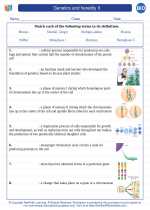
 Vocabulary/Answer key
Vocabulary/Answer key
 Vocabulary/Answer key
Vocabulary/Answer key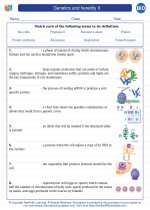
 Vocabulary/Answer key
Vocabulary/Answer key